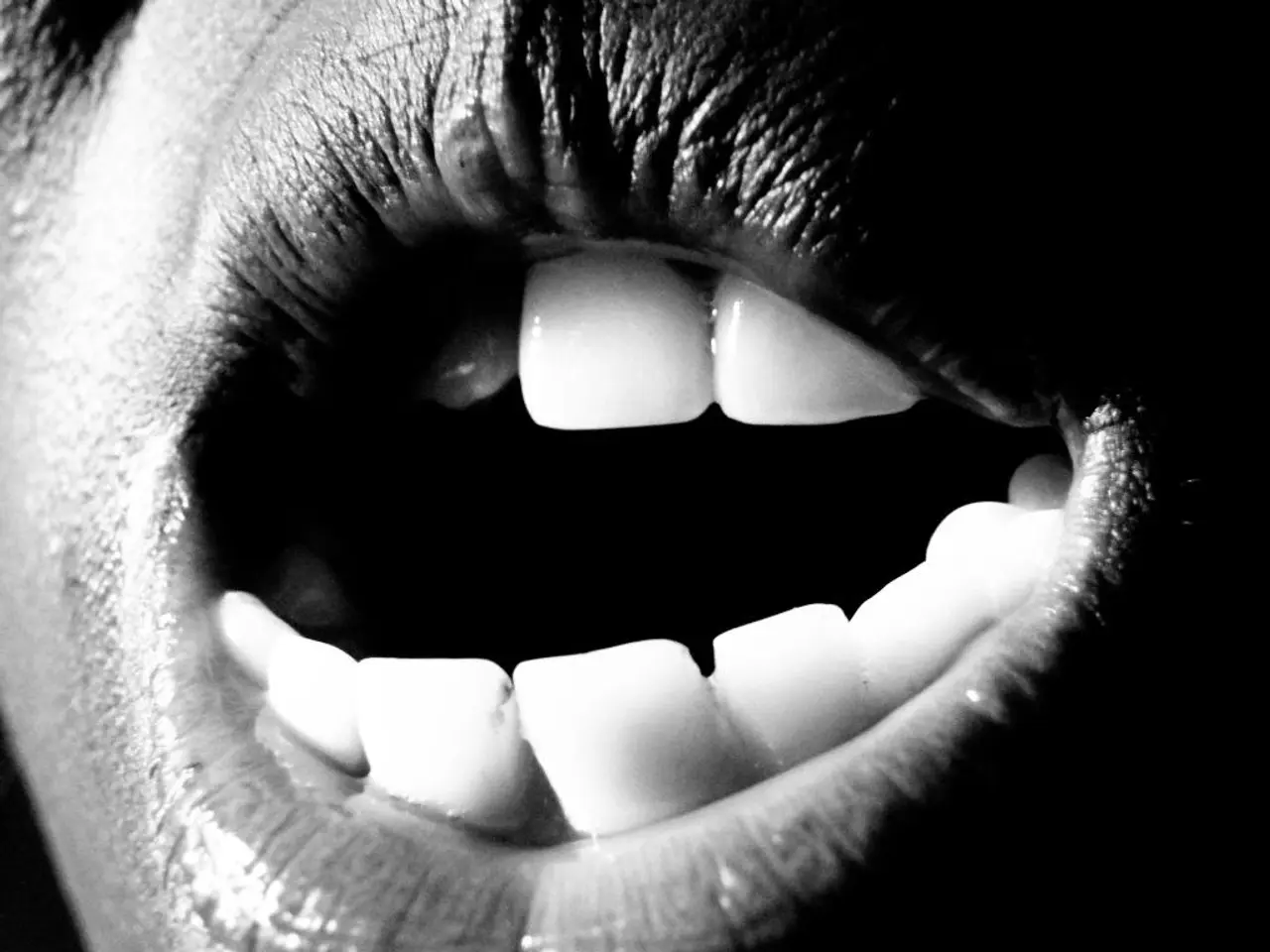Toothache relief at your fingertips: Exploring effective pressure points and their mechanisms
Acupressure, a non-invasive alternative to acupuncture, is gaining popularity as a natural remedy for tooth pain. This ancient practice, originating from Traditional Chinese Medicine (TCM), involves applying manual pressure to specific pressure points around the body, with the aim of interrupting pain transmission and triggering the release of endorphins.
One such pressure point, the Jiache, is located halfway between the corner of the mouth and the bottom of the earlobe. By applying pressure to this point, also known as the jawbone, individuals may find relief from toothache and decrease pain in the jaw. Another beneficial acupressure point for tooth pain is the Shenmen or "Heavenly Gate" point on the ear.
Conventional pain relievers, such as over-the-counter analgesics like ibuprofen or acetaminophen, act through pharmacologic mechanisms to reduce inflammation and inhibit pain signals. These medications are well-established as effective for dental pain and offer faster and stronger relief compared to acupressure.
However, the evidence supporting the effectiveness of acupressure specifically for tooth pain is limited. While there are reports of its potential to help reduce tooth pain, the evidence remains mostly anecdotal or from small studies. On the other hand, conventional pain relievers have well-established efficacy supported by numerous clinical trials.
Acupressure has the advantage of being natural, non-invasive, and safe, making it an appealing option for self-application at home. However, it is not a substitute for conventional pain relievers, which remain the more effective and reliable option for managing tooth pain clinically.
For significant or persistent tooth pain, consulting a dentist and using conventional analgesics as recommended is advisable. It is essential to remember that toothache often occurs when the dental pulp inside the tooth becomes inflamed, which can be due to tooth decay, loose or broken dental fillings, a cracked or damaged tooth, a periapical abscess, or receding gums.
In cases of severe, constant toothache, swelling in the jaw, or pus coming from the base of a tooth, individuals should visit their dentist as soon as possible. Similarly, symptoms such as swelling or tenderness in the floor of the mouth, difficulty swallowing or breathing, a severe headache, fever, confusion, difficulty seeing or double vision, swelling around an eye, or symptoms that affect breathing or vision warrant immediate hospital treatment.
In conclusion, while acupressure may offer some adjunctive relief for tooth pain and has the advantage of being natural and non-invasive, it is not a substitute for conventional pain relievers, which remain the more effective and reliable option for managing tooth pain clinically. For toothache, maintaining good oral hygiene, regular dental check-ups, and prompt medical attention are crucial for preventing and managing dental issues effectively.
- Acupressure, a natural alternative to acupuncture, targets specific pressure points like the Jiache and Shenmen, offering relief from toothache and jaw pain.
- Tooth pain can be a symptom of various dental issues, such as tooth decay, loose dental fillings, or cracked teeth, which require professional attention from a dentist.
- While acupressure might provide some relief for tooth pain, conventional pain relievers like ibuprofen or acetaminophen have well-established efficacy for dental pain and offer faster, stronger relief compared to acupressure.
- The potential benefits of acupressure for tooth pain are largely anecdotal or based on small studies, while the efficacy of conventional pain relievers is supported by numerous clinical trials.
- In cases of severe or persistent toothache, home remedies should not replace prompt dental or medical attention, as symptoms such as swelling, pus, or difficulty breathing or swallowing may indicate more serious conditions.
- For individuals living with conditions like COPD, diabetes, bipolar, psoriasis, NSCLC, obesity, depression, or other mental-health issues, maintaining good oral health and regular dental check-ups is crucial to overall health-and-wellness and fitness-and-exercise routines.
- In addition to acupressure, maintaining good oral hygiene, such as regular brushing, flossing, and using mouthwash, can help prevent tooth pain and other dental issues.
- The practice of acupressure, originating from Traditional Chinese Medicine, involves manual pressure on specific points around the body, with the goal of alleviating pain, and is part of the broader field of science and holistic health-and-wellness.
- While acupressure may offer some adjunctive relief for tooth pain, it is important to remember that it should not be used as a substitute for conventional pain relievers or professional dental care in managing toothache effectively.




